We’ve all waved goodbye to a bike at the airport and wondered whether we’d ever see it looking so lovingly uncrushed again. Luckily for us, professional gravel racer and seasoned aisle-seater Brennan Wertz spends his days living out of a suitcase, ordering exotic cappuccinos and dealing with dodgy logistics, all while keeping cool enough to duel banjos with the best trail riders in the world and win. We sat down with the big man to hear how he does it.
Pete: Brennan, good to see you.
Brennan: You too, Pete.
Pete: Ok, let's get into it: what's your first tip for successful cycling travel?
Brennan: Fly with a metal bike! Ok, I'm joking, but not much. With a metal bike, you don't have to worry so much about your frame getting damaged in travel, at least terminally. That's a huge asset with the bikes I'm riding now - the ability to travel with them easily and throw them in a travel case without worrying whether they'll be rideable at the journey's end.
Pete: Do bikes get damaged a lot on planes?
Brennan: They seem to. I hear about it a lot on the race circuit. But with my bike's titanium frame - it would be the same for any metal - I know I can throw it in my soft travel case without too many worries. It's not the most heavy-duty, rigidly structured case, but because I know that I could take a sledgehammer to my frame and keep riding it, no problem. That gives me a lot of confidence when I rock up at the airport, knowing it's just one less thing to worry about. And with the amount of traveling I'm doing right now, that's a huge asset. It makes life way easier.
Pete: It's probably worth mentioning that frame damage is quite unlikely if someone travels with a top-tier hard case.
Brennan: Oh, for sure. A good hard case can't compress, even when someone stands on it. But that leads me to my second tip: a soft case saves you space when you get in the rental car or embark on your onward journey. If you're traveling for a while, changing trains, going to this hotel, that hotel, a soft case makes things a lot easier. You can stow it someplace, strap it, squish it - you have options!

Pete: Nice. Tip number three?
Brennan: Stay hydrated! I used to find myself getting pretty hollowed out when travelling. And it sucked. But it's easy to drop the ball, what with the changing temps and the stuffy cabins. So now I make a big effort to have at least two bottles with me at any given time, and whenever there's an opportunity to fill them up, I grab it. And if I can put some of my Osmo hydration mix in there, all the better. Just make sure you're sitting in the aisle after all that sipping so you can sling your hook to the bathroom without disturbing your snoozing neighbor.
Pete: The bike's safe. We're loose, limber and sat with one eye on the loo. Life is good.
Brennan: There you go. Alright, next tip. Let's see... ok, here's a good one: arrive in time. And by that, I mean if your race, training camp - insert your reason for traveling with your bike here - is on the weekend, it's no good getting there on Friday or even Thursday. Wednesday is your jam. And if that seems too early, you've never experienced the terror of being late for the start line.
Pete: Or the hotel breakfast buffet.
Brennan: There are only so many hot rolls. But trust me on this: Wednesday is just right. In my world, it's imperative, given the recon arms race that is modern gravel racing. But let's say you're going away for a week of riding in Mallorca, and you've never rolled on those roads before. It's a good idea to do a recce to get a feel for the terrain before you get in a group and the adrenaline kicks in!

And if I can I add a secondary point to this prep business, it's to suss out the routes you'll be riding, too. "Ok, we're going to have one day that's this long, and then the next day that's this long." If you have that information, you can prepare for that, and maybe a few weeks before the trip, go for a long weekend or do two rides back to emulate the length and distance and climbing metrics of the rides. That's preparation!
Pete: It sure is. I'm guessing this pre-trip prep would also give you some pretty clear insights into your form and where you might be lacking if you're to have fun rather than be floored by the experience.
Brennan: Exactly. That applies if it's a race, a Gran Fondo, or a travel trip with a group of friends, and you just want to make sure you're not the slowest one holding up the group. Even if you're not racing, it's more fun to be fit and feel like you're challenging yourself with enough energy to finish the day without feeling crushed.

Pete: The same philosophy applies to kit and equipment, too, right?
Brennan: For sure, and that starts with the bike itself. It's good to know you've got your equipment set up appropriately before you leave and have been able to test it. You don't want to be taking your bike to the shop the day before you go to completely change your configuration and then show up in a new place with a bike that's now so utterly foreign to you it feels like new.
Pete: I suspect the latter happens a lot. I know I've been that guy.
Brennan: At some point, we've all been there.
Pete: I think I might have lost track of the tip numbers, so I'm going to freestyle and ask you about spares. What has experience taught you to take on every trip?
Brennan: Great question. Travelling with a spare tire is smart. I mean, most people are in a very different position to me, and if they cut a tire, they can find a bike shop and buy whatever tire they have, and it's not a problem. But I'm supposed to be riding a particular brand, so I have to make sure I have a spare because I can't just go to any old bike shop in Italy and buy a Rene Herse tire. That being said, tires aren't expensive, and if the trip you're taking is a significant investment in time, effort and dollars, a spare tire is a cheap way to cover all your options. In other words, it's better to be self-contained rather than spend precious time scouring the area for spares when you could be on the sun lounger.
Pete: What else might you pack?
Brennan: I would say brake pads and chains for me, but it depends on where I travel. If I'm going to Kansas and riding Unbound, and it's pretty much rolling terrain with little braking, then maybe I won't bring so many spare brake pads. But last year in the Dolomites, I went through three sets of brake pads in three weeks because I finished the trip with a bikepacking ride. All the extra weight I was carrying cooked the pads!

The lesson here is, wherever you're going, try to anticipate within reason what spares you might need, what you'll be able to get locally, and what feels like overkill.
Pete: Good advice. Ok, next tip, sir.
Brennan: Given what we've just talked about, this might seem contrary, but when you get to a new area and plan to be there for a while, it's a great idea to go to the local bike shop whether you need help or not. Popping is an excellent opportunity to see what they stock, pick up a few bits that don't fly, like c02 cartridges, and meet the people and say hi. The local bike shop is always one of my first stops in a new place, even if I don't need anything, especially if it's somewhere I'm going to be for an extended period.
Pete: That's a great idea!
Brennan: Yeah, and by doing that, I've met some cool people, especially when I've been in Europe. It often turns into, "Oh, come here, sit down in the back, have a coffee with us, we've got our espresso machine in the back, come sit down," and you build these relationships. Plus, they usually see my kit and all the logos and say, "Oh, what are you doing, and what bike do you have?" And usually, people recognize the bike or the Lightweight wheels, or there's something "Wow" that's eye-catching, something you don't see every day. That happened in the Dolomites at a Q36.5 dealer, and now whenever I return, they know me, and we hang out a bit. It's special.

Pete: It makes it a small world, that's for sure. Ok, next tip!
Brennan: Attitude. Going with the flow. For me, this rings the truest when I'm bikepacking. Whenever I've strapped my bags to the bike and pedaled off, I've always been without a super structured plan.
Last summer, when I rode across the Alps, I didn't have anything booked. I didn't have a plan. I had a rough idea of a route and tried to do it as an altitude camp where I would spend the night at the highest point of the day. On the first day, I rode to the Stelvio, climbed it as it got dark, and stayed in the hotel at the top. About midday, I would book a hotel online for later, "Ok, am I going to make it to the town that I thought I was going to? Can I still spend the night on the pass? Yeah, ok."
And sometimes it doesn't work out as you expect. Once, I couldn't book anywhere beforehand, so I had to do it the old-fashioned way. So when I got to the town, I was trying to make it for the night. I just went from hotel to hotel and asked, "Do you guys have a room? No? Ok. Do you know another hotel that might? Yeah, one down the street? Ok." But again, that comes back to having the kind of go-with-the-flow attitude and being open-minded. In those moments, if you get too stressed out and work yourself up, it becomes unpleasant fast. So I try to look at these setbacks or potentially stressful situations as learning moments and laugh.

Pete: Ok, let's wrap up with a final question related to your going-with-the-flow comments. When you get to the start line, do you have any advice on not getting overwhelmed or even in the race if things aren't going well?
Brennan: The easiest thing to do in that situation is get a little over your head, push too hard at the beginning or get a little too worked up and throw a lot of your preparation out the window. But I think that's the time to reflect on all the work you've done and have confidence in yourself and know that, "Ok, no, I looked at the course, I trained specifically, I've got this." Having a mindset of acceptance and an awareness that things will go wrong is its own confidence. There's nothing you will face that you won't be able to handle. However, at the time, it might not feel like that!
But Pete, controlling your emotions in a race is hard. It's a constant battle. However, as I mentioned before, preparation does help, whether you're gunning for a position, riding with your friends, or entirely new people on a weekend session or social spin. Knowing yourself and your equipment, being kind to yourself, and not cursing yourself out if something happens is the best way to have a great day. We're all just learning.
Pete: Get me a Kleenex. That was beautiful.
Brennan: You got it. Take it easy, Pete!
Pete: You too, man.
-----------------------------------------------------------------------
Photos by: Alex Roszko for Ceramicspeed

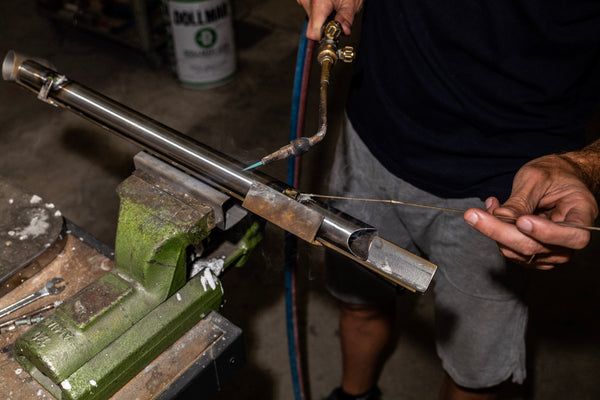
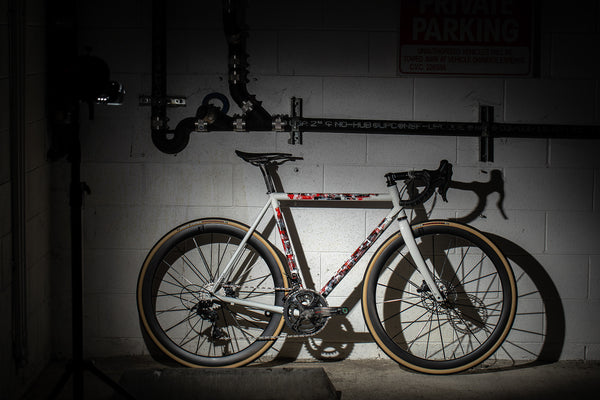
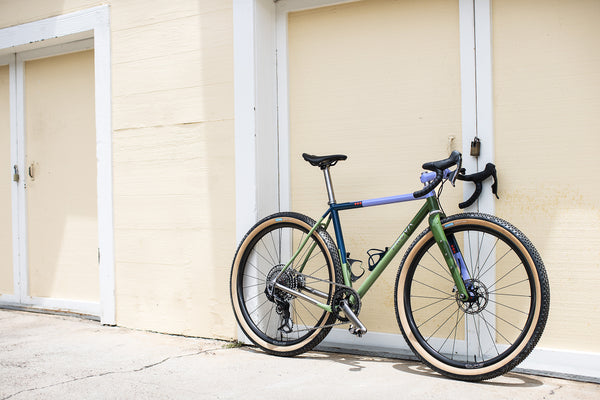
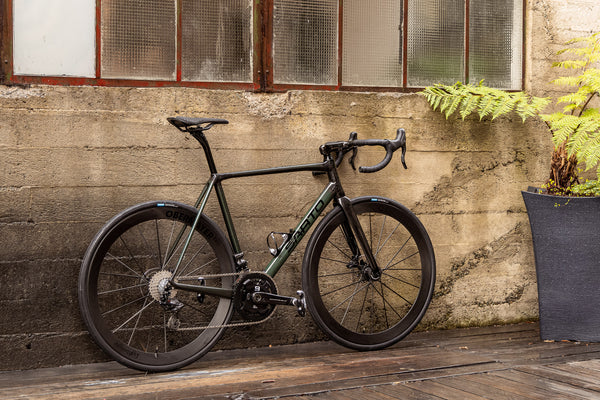
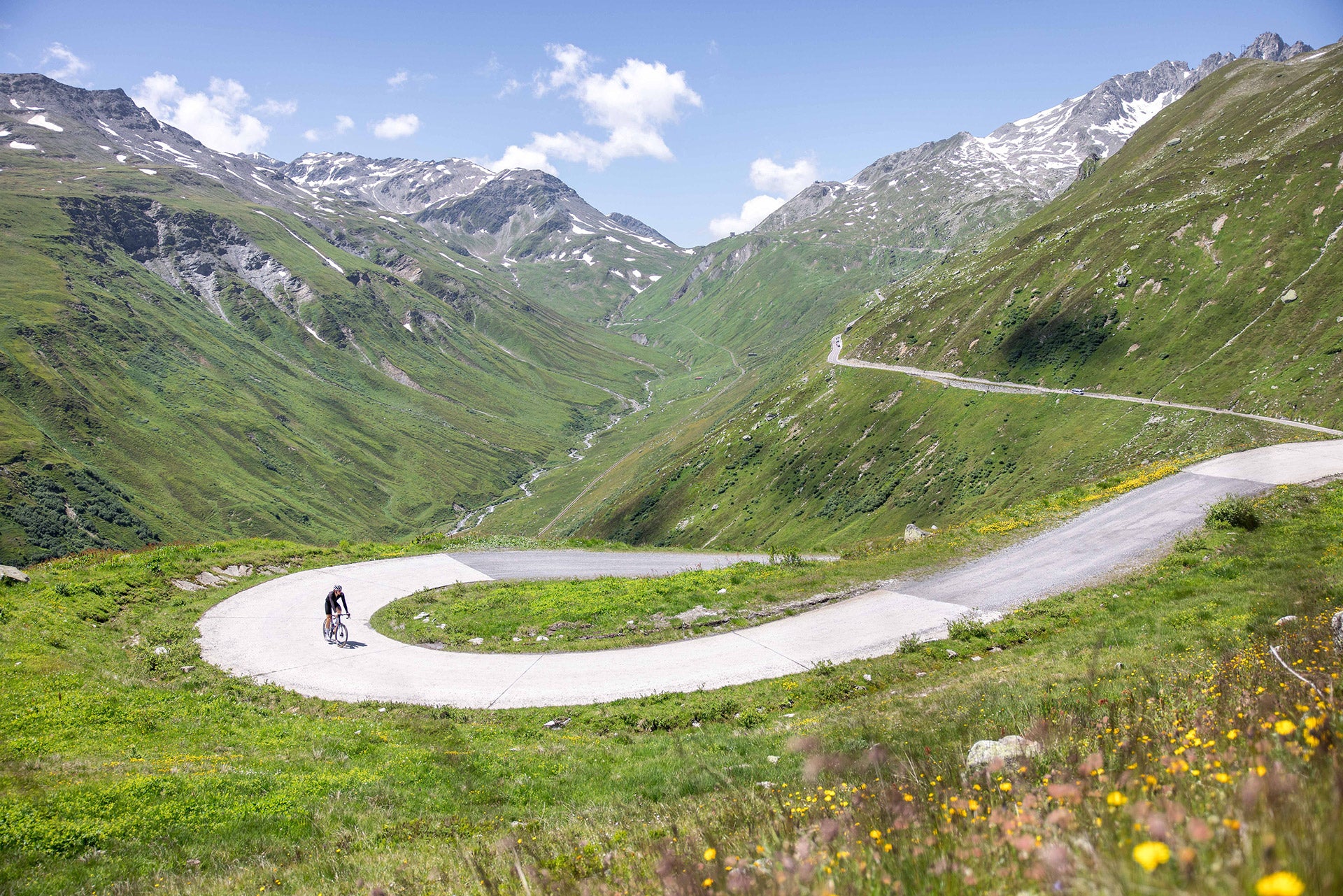



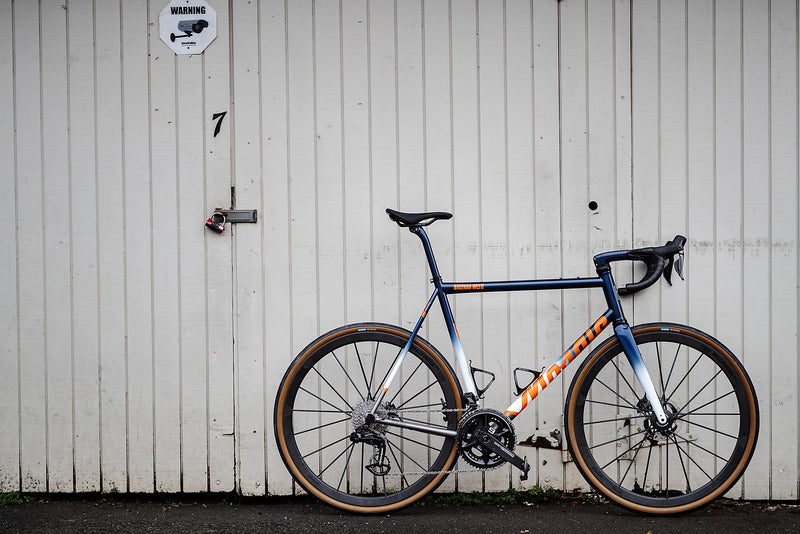
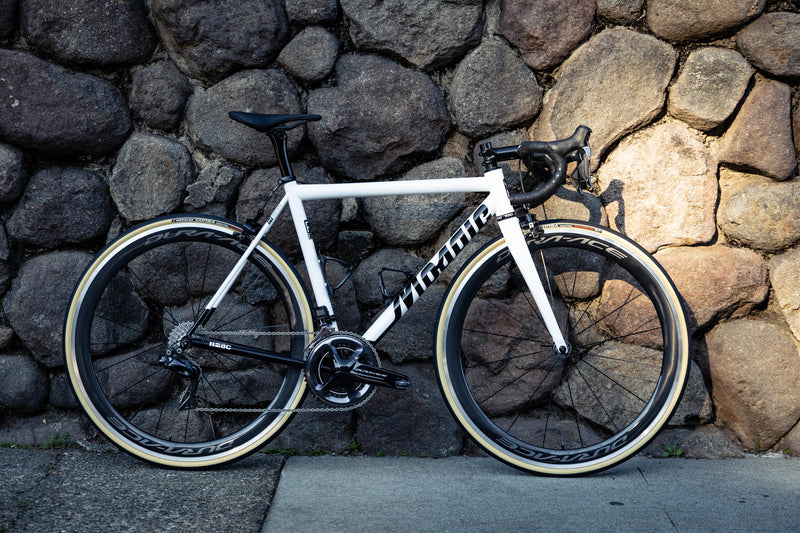
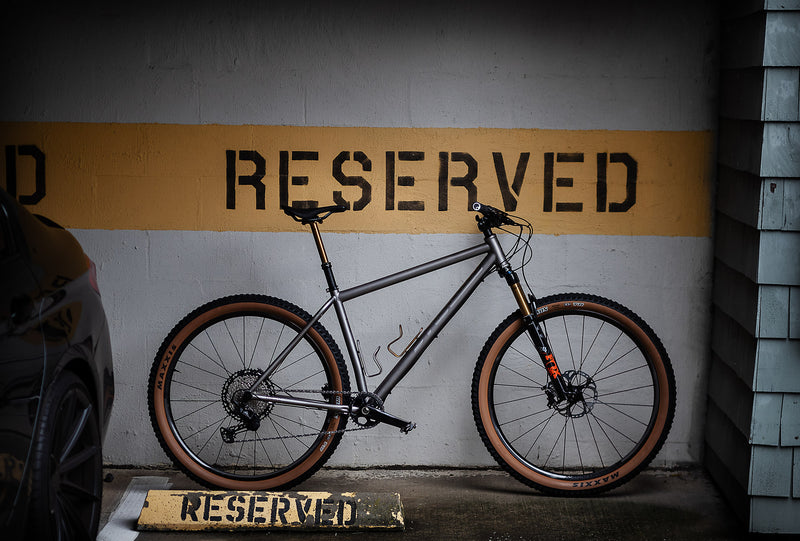
Back to Journal